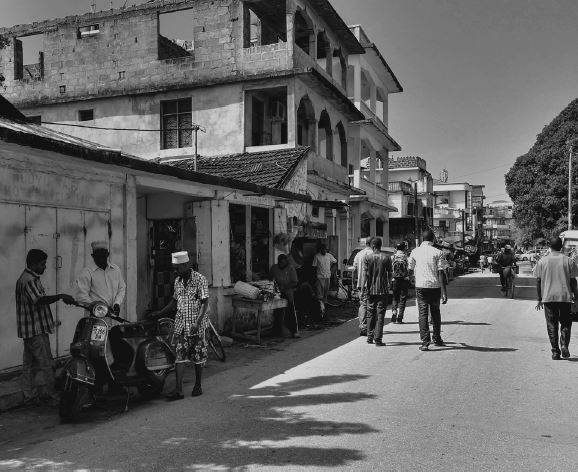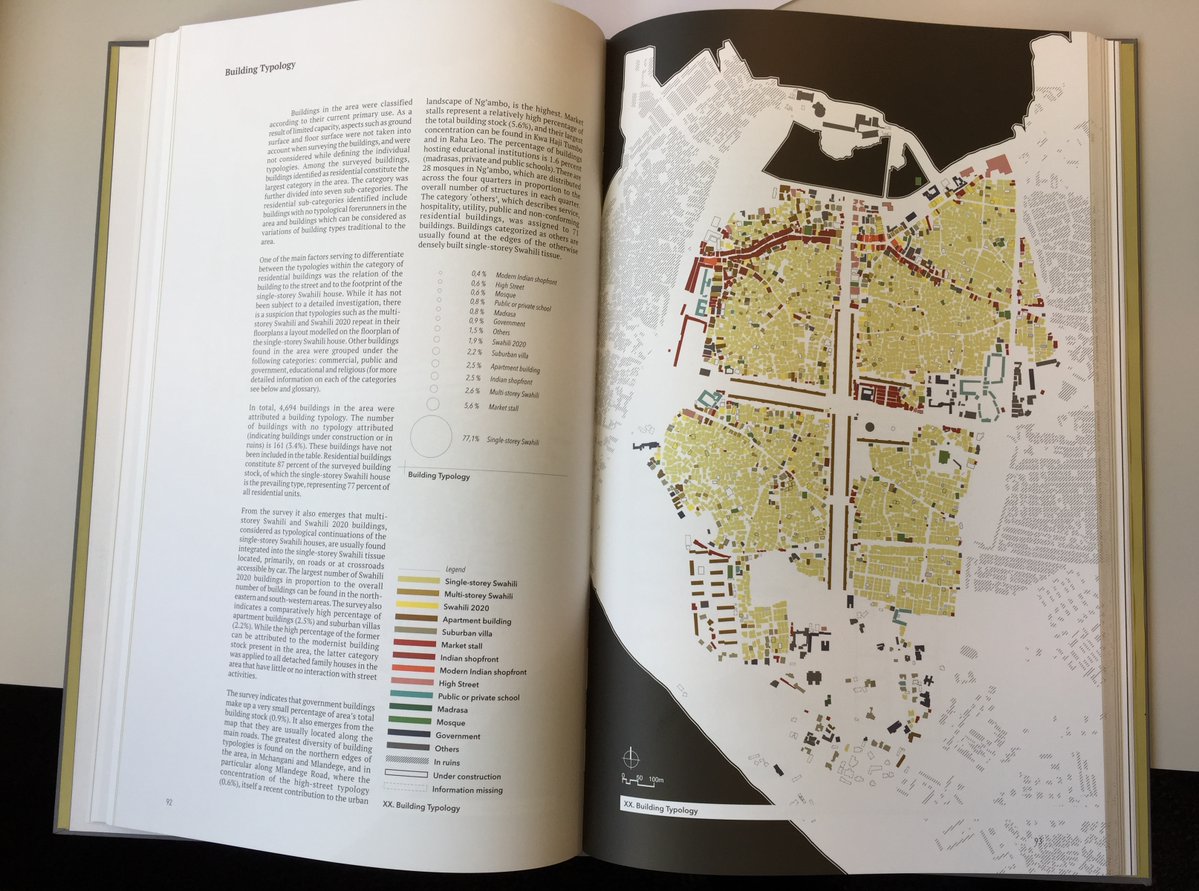Ng’ambo atlas. Historic Urban Landscape of Zanzibar Town’s ‘Other Side’

Photo from the Ng'ambo Atlas.
Ng’ambo is the lesser known ‘Other Side’ of Zanzibar Town. During the British Protectorate the area was designated as the ‘Native Quarters’, today it is set to become the new city centre of Zanzibar’s capital. Local and international perceptions of the cultural and historical importance of Ng’ambo have for a long time remained overshadowed by the social and cultural divisions created during colonial times. One thing is certain: despite its limited international fame and lack of recognition of its importance, Ng’ambo has played and continues to play a vital role in shaping the urban environment of Zanzibar Town.
 Ng’ambo Atlas is the concluding chapter of the Ng’ambo Tuitakayo Project undertaken by the Department of Urban and Rural Planning in Zanzibar and African Architecture Matters, in collaboration with the City of Amsterdam between 2012 and 2016. The goal of the project was to prepare a local area plan (structure plan) for the new city centre of Zanzibar’s capital. From the beginning, the team's planning exercises were grounded in the notions of urban culture and heritage, while the principles outlined in the UNESCO Recommendation on Historic Urban Landscape provided a framework for the subsequent stages of the work.
Ng’ambo Atlas is the concluding chapter of the Ng’ambo Tuitakayo Project undertaken by the Department of Urban and Rural Planning in Zanzibar and African Architecture Matters, in collaboration with the City of Amsterdam between 2012 and 2016. The goal of the project was to prepare a local area plan (structure plan) for the new city centre of Zanzibar’s capital. From the beginning, the team's planning exercises were grounded in the notions of urban culture and heritage, while the principles outlined in the UNESCO Recommendation on Historic Urban Landscape provided a framework for the subsequent stages of the work.
The project team realized that the cultural and historic richness of Stone Town’s ‘Other Side’ merited a wider recognition than a technical planning document would allow for. For this reason it was decided to collect al these rich findings in an atlas – a format that made it possible to bring together and present Ng’ambo’s rich planning history through historic maps and plans, and to draw attention to the outcomes of the mapping of the material and immaterial cultural landscape conducted during the project.
Ng’ambo Atlas presents over hundred years of Ng’ambo’s history and urban development through maps, plans, surveys and images, and provides insights into its present-day cultural landscape through subjects such as architecture, toponymy, cultural activities, public recreation, places for social interaction, handcrafts and urban heritage.
The Atlas has been compiled by the Department of Urban and Rural Planning in Zanzibar and African Architecture Matters. The African Studies Centre Leiden has facilitated the electronic version. The Atlas was launched at the Future of the African City Conference on 24 January 2019.
The research, production and publication has been made possible through the generous support from the Netherlands Enterprise Agency, the Creative Industries Fund NL, the Embassy of the Kingdom of the Netherlands in Dar es Salaam, EFL Foundation and the City of Amsterdam.
Author(s) / editor(s)
How to order
ISBN: 9789460225178
Number of pages: 192
Year of publication: 2019
Price: € 59,50
The Atlas can be ordered at LM Publishers.

